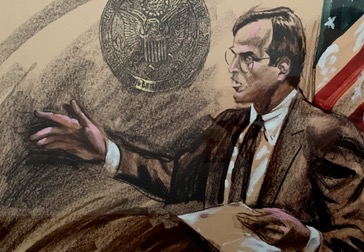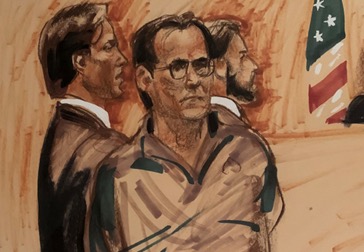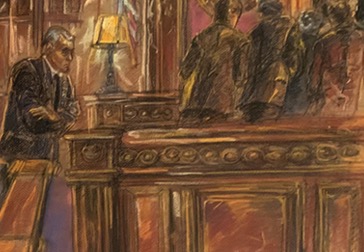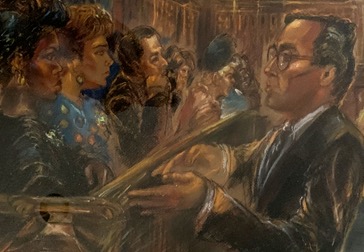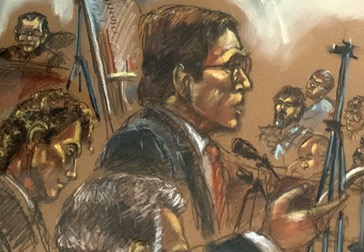SCOTUS Decision On Plea Agreements: Less Wiggle Room Than Before
Defendants in federal criminal cases, particularly white collar cases where the laws can be ambiguous (think insider trading, honest services, etc.) face a difficult decision as to whether they should plead guilty or take their case to trial. Statistics show that defendants typically take a plea (over 90% of federal cases), the remainder take their case to a jury.
Taking a plea has its advantages; reduced prison time, good relationship with judge/prosecutors who have a hand in determining one’s fate, and the certainty of an outcome (get it over with). The disadvantages for defendants are that they are usually stuck with that decision. Taking a plea is difficult and, like any big decision, there can be thoughts after the fact causing one to wonder whether or not they made the right choice. However, the way the federal justice system works is that once a plea is submitted and accepted by the judge, the defendant is giving up a lot in exchange … like the right to a jury trial, chance at freedom, right to appeal, and being labeled a felon (always a tough one on those job applications.) So what if a defendants changes his/her mind about the plea and want to take it back? The Supreme of The United States recently gave one guy a “take back” and his name was Rodney Class.
Class, who refers to himself as a 14th Amendment Bounty Hunter, pleaded guilty to having firearms in his Jeep that was parked on Capitol Hill, a no-firearm zone. Class believed that he was within his rights to have a firearm (a weapon that was locked in a safe inside his Jeep and for which he held a license in North Carolina). After arguing that the charges against him violated his 2nd Amendment rights and that he did not know the local (Washington DC) laws concerning carrying a firearm, Class reluctantly decided to plead guilty to reduced charges. He was sentenced to 24 days in prison and one year of probation … not a bad outcome.
As Class took a closer look at his guilty plea, he noticed that it did not contain anything about the right to raise on direct appeal a claim that the statute of conviction was unconstitutional. He saw this as an opportunity to appeal his conviction/guilty plea to the Court of Appeals for the District of Columbia Circuit. That court ruled against him holding that Class could not raise his constitutional claims because, by pleading guilty, he had waived them … along with a lot of other rights. There was only one place to go … Supreme Court.
The government’s position was that lowering the bar to allow defendants to withdraw guilty pleas would cram the justice system with so many cases that it would bring the courts to a halt … pleas needed to bring some form of finality to a case. The government wants plea agreements to stick, with the exception of special circumstances (really bad lawyer … just being a bad lawyer is not good enough, changes in law, etc.). SCOTUS agreed with Class with Justice Stephen Breyer writing, “Class did not relinquish his right to appeal the District Court’s constitutional determinations simply by pleading guilty.”
To help me understand this case, I reached out to Brandon Essig, a former federal prosecutor and now a partner at Lightfoot, Franklin & White in Birmingham, AL. “There are clear cases where someone can withdraw their guilty plea,” Essig said, “like in a situation where someone pleads, but specifically negotiates a provision in their plea agreement that allows them to challenge a specific legal issue. One example would be the right to challenge a search or seizure of evidence as illegal and in violation of the person’s constitutional rights.” However, in Class’s case, he did not reserve the right to raise such a challenge. Also, he was not challenging evidence or even disputing that he had firearms. In essence, he was arguing he did what the statute said he couldn’t, but that the statute itself violated the 2nd Amendment to the Constituion and was an invalid exercise of government authority. He was asserting a jurisdictional challenge to the very statute used to prosecute him—the government has no jurisdiction over constitutionally protected activity.
So how does this relate to other crimes, particularly white collar crimes where there are so many guilty pleas? Does a ruling like this make it easier for someone to withdraw their plea? According to Essig, “not necessarily.” Essig noted that recent SCOTUS opinions have sought to curtail vague statutes (like those in the Jeff Skilling (Enron, honest services) and Bob McDonnell (Gov of VA, bribery cases)), so there are very few white collar statutes with constitutional boundaries that are not already well defined for prosecutors and defense lawyers. In Essig’s experience, the language of plea agreements in such cases take away a defendant’s ability to challenge the statute itself. As to whether or not this will have an effect on future guilty pleas Essig told me, “Most of the language in plea agreements is boilerplate, stuff that has to be in there. So I am confident that prosecutors across the country looked at this case and are revising those agreements to account for this type of scenario. My expectation is that the Department of Justice will actually draft language to address this specific issue and require it in all plea agreements where the United States is a party.”
The result is most likely not going to be a rush to appeal existing plea agreements, but a move toward a plea agreement that is more absolute with little wiggle room to get out of it.
Walter Pavlo, Contributor
https://www.forbes.com/sites/walterpavlo/2018/04/02/scotus-decision-on-plea-agreements-less-wiggle-room-than-before/#5da0208c4d43
April 2, 2018


